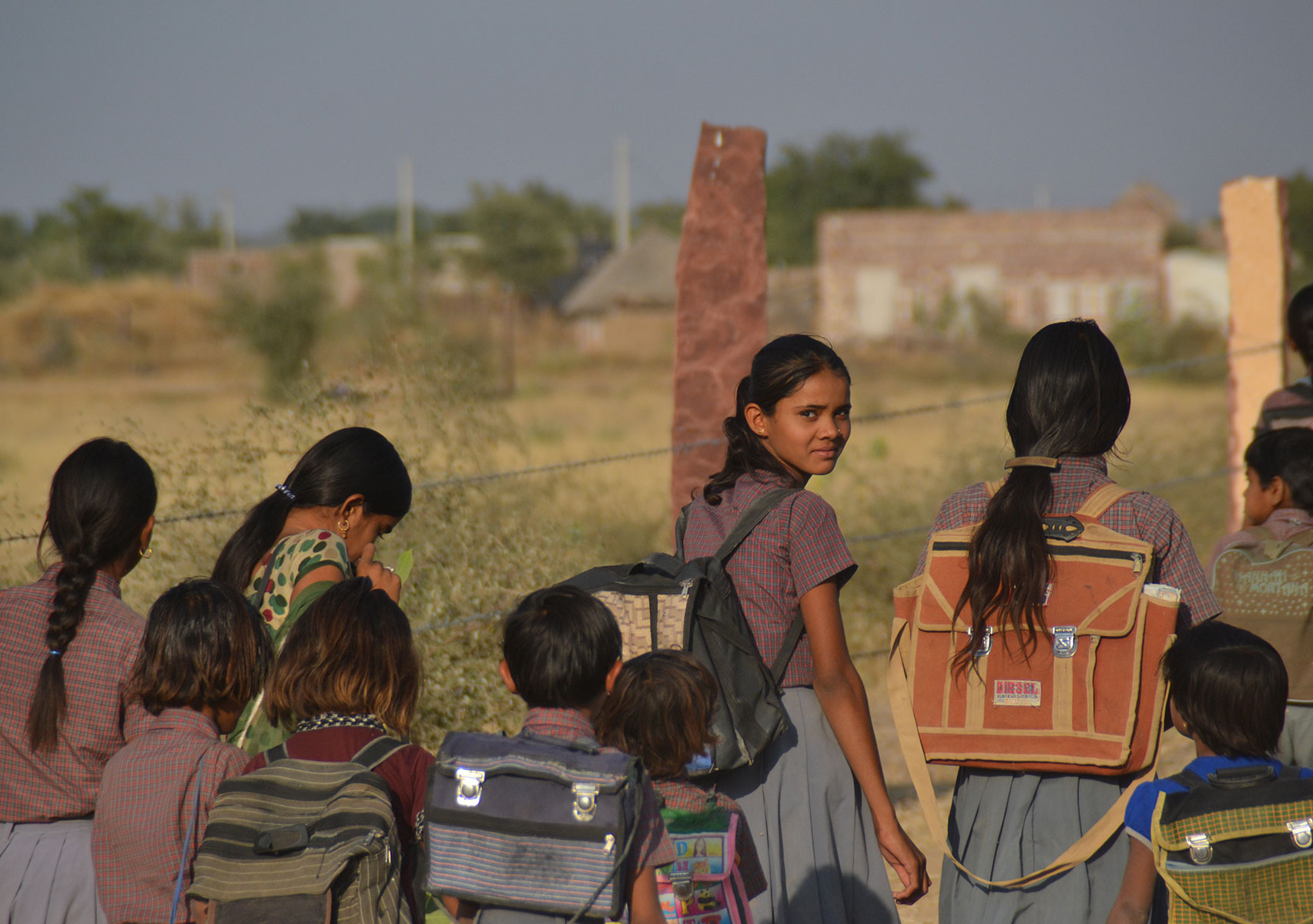For the past 20 years Nioma has been traveling to Traditional Medicinals source communities. In that time she has built a deep and lasting relationships with communities around the world but her relationship with our senna farming community in Rajasthan, India is especially deep. And in 2006 she founded the nonprofit WomenServe to address gender inequities for women and girls in this community, starting with access to water.
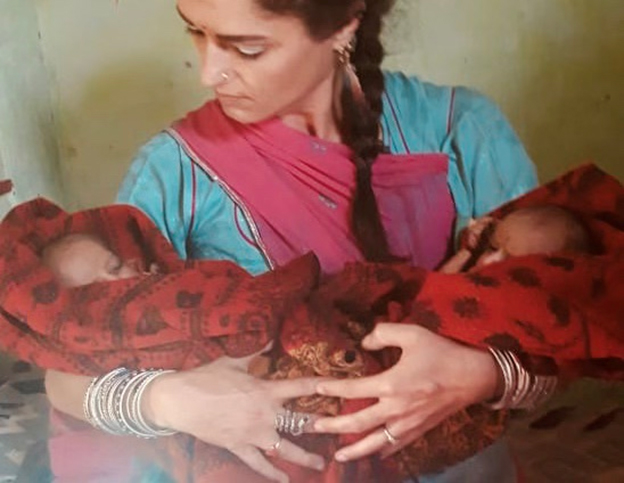
Why are you fighting for all girls to have opportunities for education?
I grew up in an unusual family. My parents did not want me exposed to the modern world. They felt the earth was going downhill, humans were polluting the land, water, and air, destroying our home, the planet. They were earth-worshiping, nature-loving people. My mom was an herbalist, and my dad was a college English professor as well as a poet. Despite his line of work in academics, both my parents decided that my siblings and I would be unschooled, that nature would be our teacher.
While my siblings were content with this unconventional schooling choice, I looked on longingly at the kids walking past our house on the way to school. I was more aware every year of the time passing, each grade I was falling behind, and wondering how I would ever catch up. I longed to learn, and I wondered what opportunities I would have when I grew up, how I would support myself, how I would participate in the larger world.
We were taken to the library frequently and freely allowed to read and check out whatever we desired. My love of learning only grew there. I read lots of biographies of women. And my passion for girls to be able to achieve anything they wanted was fomented in those library shelves.
When I visited Traditional Medicinals senna sourcing community in Rajasthan, India I saw women and girls limited in what they were able to do in the world. As my relationship with that community grew I sat with them in their kitchen and heard stories that resonated with me — and I realized I wanted to help women just like them create opportunities for themselves.
What is your goal with your work?
Simply put, it all starts with water. But water is not the goal. The goal is equity in opportunity.
Water is a scarce resource in the Thar desert. To support their family and livestock, women and girls walk up to 10 hours a day, carrying metal pails of water on their heads to bring home enough water for their families. Because they need to support this most basic of needs, girls are pulled out of school at a young age.
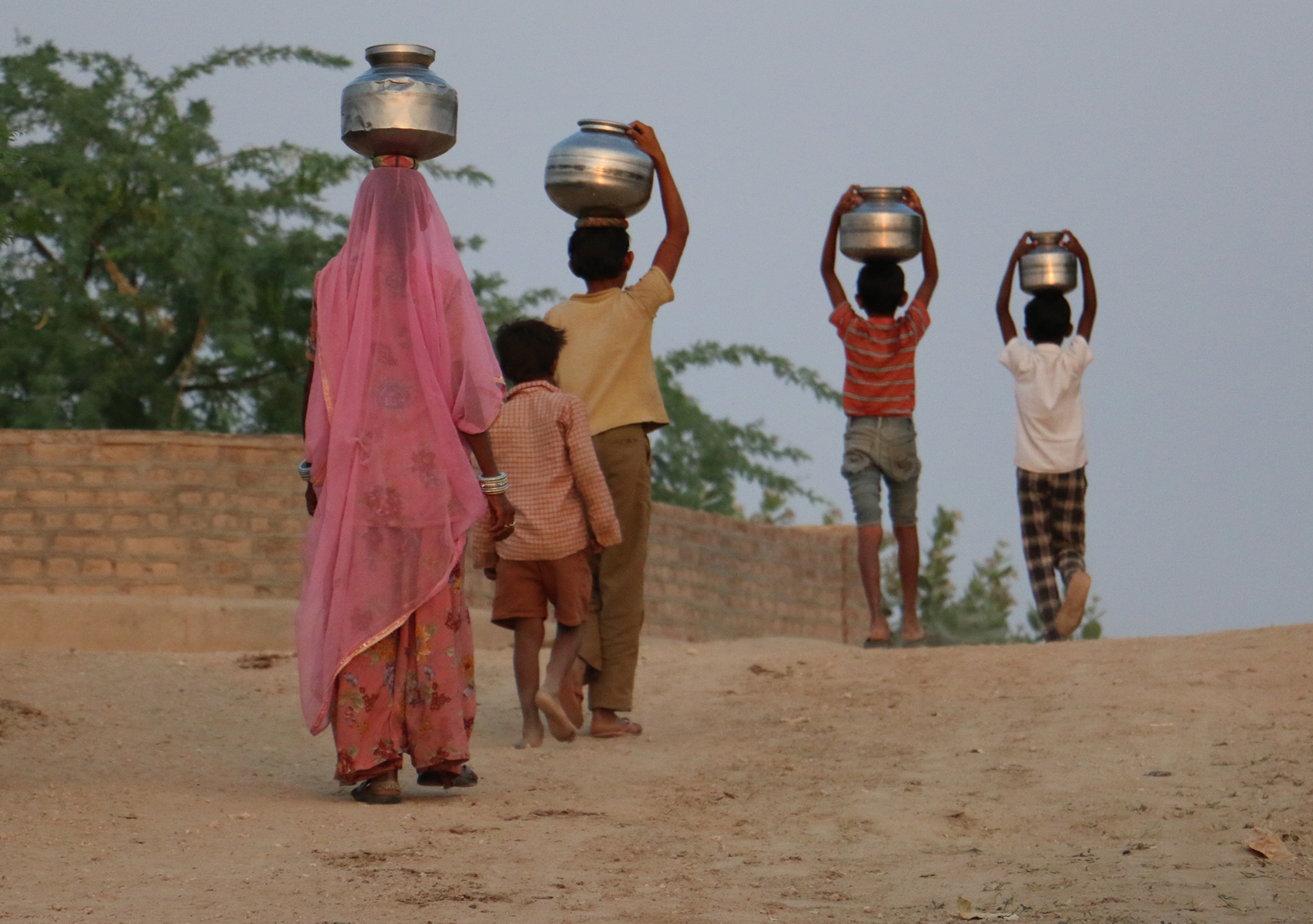
As the Goodwill Ambassador for Traditional Medicinals, I believe that every community has the innate ability to heal themselves, so I sat down with the with this community to build a relationship with them that would allow me to understand what resources they needed to build their own solutions. What came from every conversation I had was the need for water, the daily life of women and girls was bound by the capacity to provide water.
The community shared with me traditional rainwater harvesting techniques that used underground cisterns of stone or concrete, to collect and store rainwater. These Taankas provide year-round drinking water for humans and livestock, substantially reducing the time women and girls spend gathering water — allowing them to focus on education, health, and economic initiatives. Through the years we worked on more projects for the communities where the senna farmers lived, desilting community water ponds, building schools community resources centers, and supporting agricultural and economic training programs.
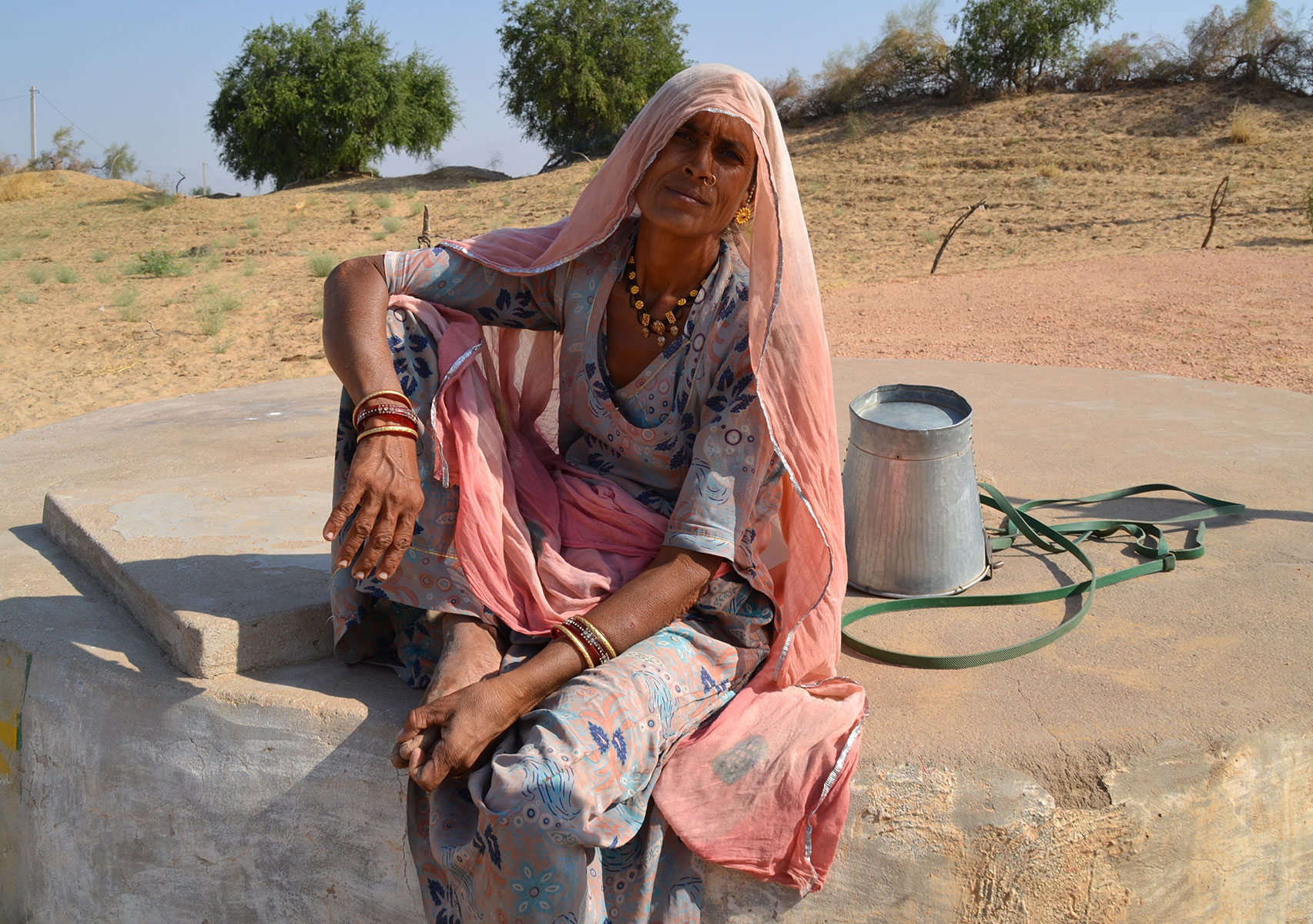
Traditional Medicinals sources from over 37 countries, and partners with many of these source communities to support their needs. I knew that it was time for our team focus on other communities beyond Rajasthan, but I knew I wasn’t ready to move away from this community. There was still so much work to be done. But I also didn’t want to take away from other communities that Traditional Medicinals works with — so, I founded WomenServe with the mission to unlock the potential of women and girls by increasing access to water, education, health, hygiene and economic empowerment.
And for the last 16 years we have continued to build on that work.
What’s ahead for you and WomenServe?
I live by two mottos: love and serve. To me this means walking beside these communities with respect and offering them what I have to share.
We know now, after 16 years working with this community, that when given the opportunity, girls can and will succeed. The percentage of girls now going to school, and not just to primary school but surpassing the boys in attendance in secondary schools, is amazing.
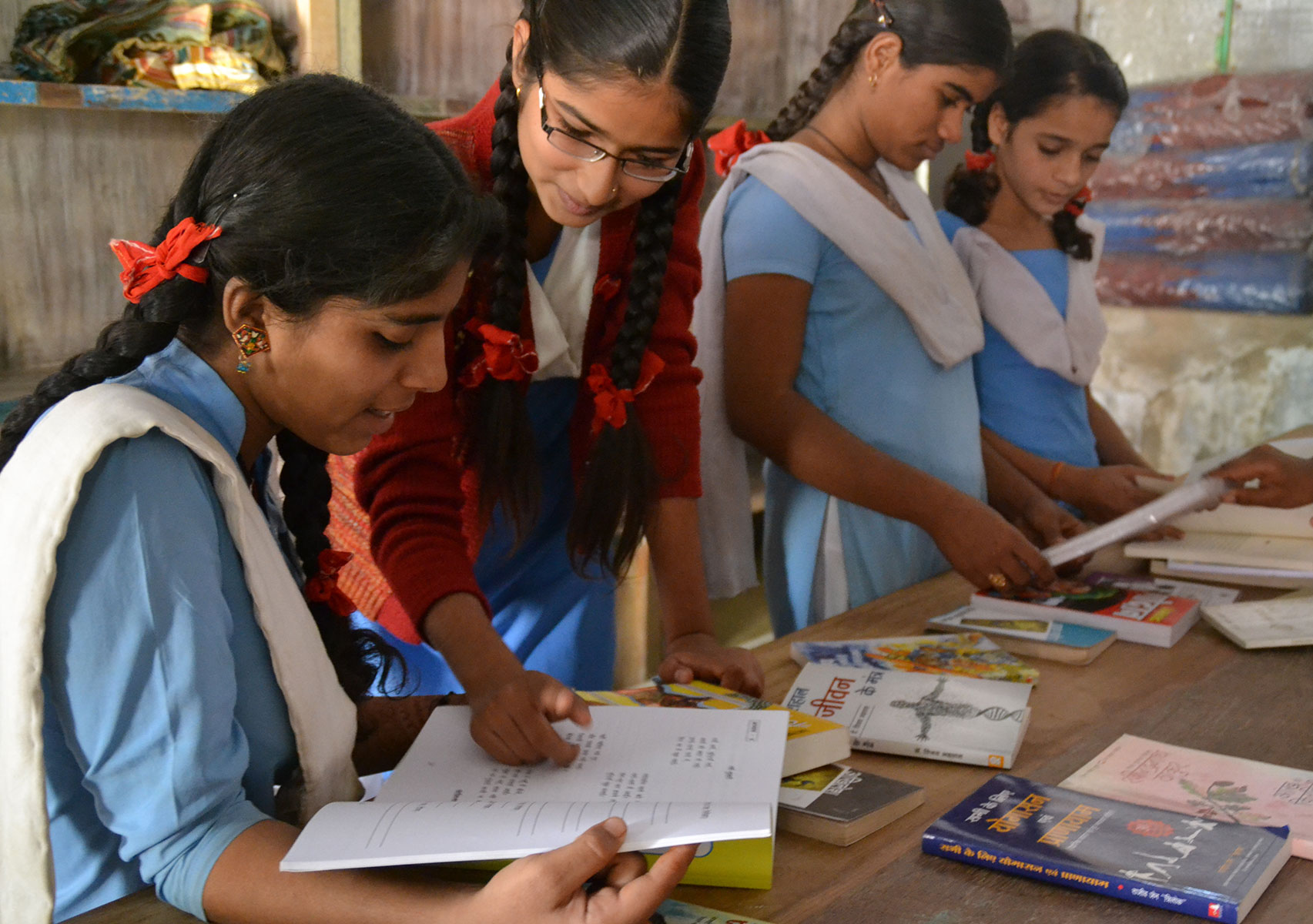
The shift I see in the community, of this next generation of women, with new hope of what is now possible for their lives and the lives of their daughters is incredible. I can look back at all the conversations I have had, sitting with them in their kitchens, and I can see the impact that this work has had on their ability to imagine what more is possible.
A big part of this success is based on our mutual partnership, built on respect.
How can Traditional Medicinals Customers help?
From the bottom of my heart, I thank you for being a part of this journey with me. This work means so much to me, the change I have been able to witness. Being a part of Traditional Medicinals has allowed me opportunities I never thought possible when I was a young girl sitting in a library, reading about women doing amazing things.
I am so excited for what lies ahead and for our continued partnership with Traditional Medicinals, and thoughtful, purposeful consumers like you that make this work possible.
I invite you to explore our website, womenserve.org, to learn more about this work, or visit our store womenserve.org/shop to shop items from the Thar Artisan Collective.
